The post Kentucky Fried Camel in Egypt: My Return to a Country I Never Left appeared first on The Expeditioner Travel Site.
]]>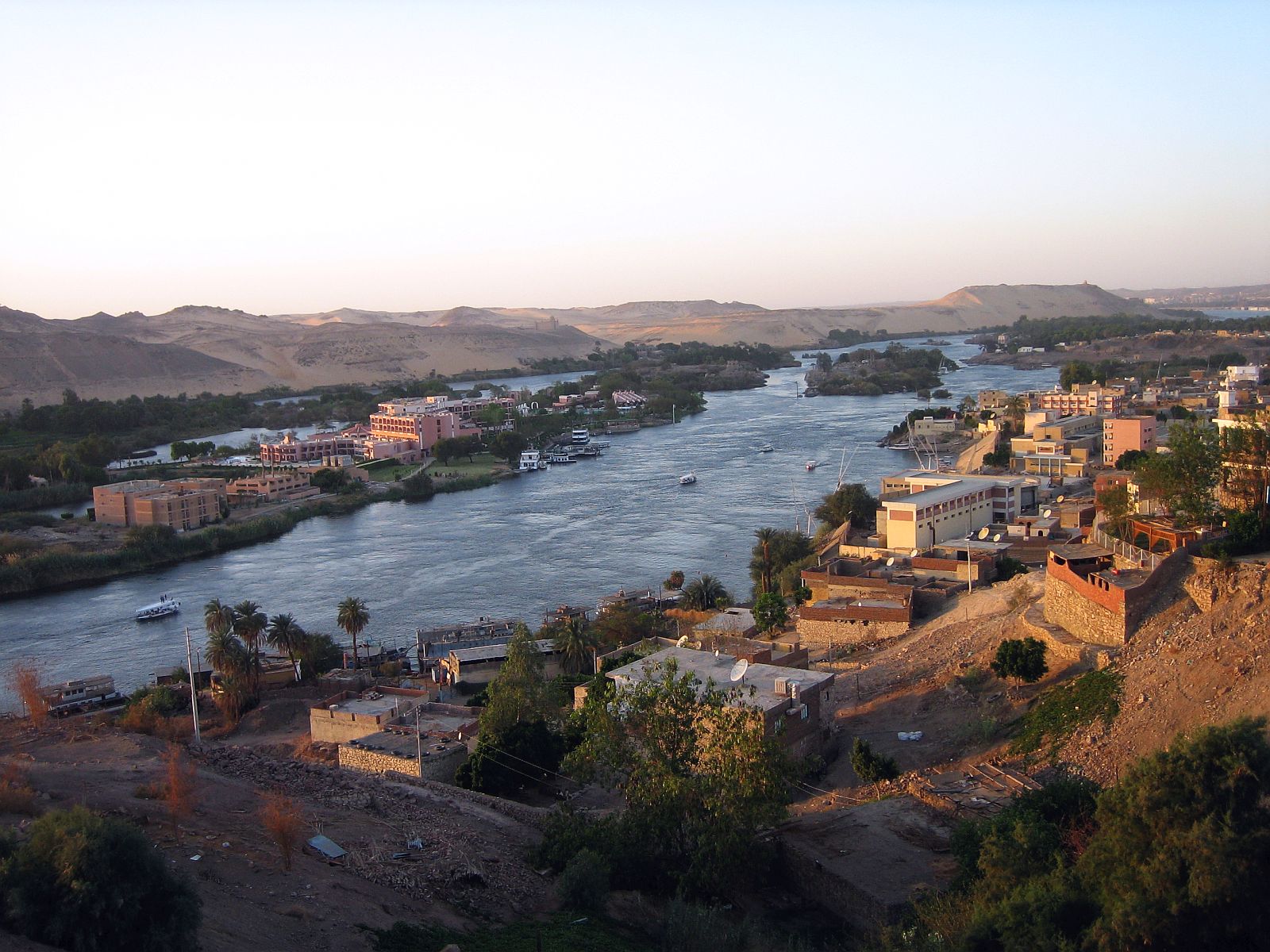
“You don’t scream as the camel stands up,” Amina told me with a smile. “It must be your Egyptian blood.”
I patted my camel’s neck as he turned towards the pyramids. They stood, three majestic pieces of history, glistening out over the horizon. The sand blew into my eyes as my father barked at me to spin the camel around for a picture.
“Does the camel have a name?” I asked his owner, as I nudged for the camel to turn.
“Yes. He’s named KFC — Kentucky Fried Camel.” He laughed at his own joke. Egyptians had a deep, inexplicable love for KFC. Not a single person I had met had been able to explain why.
My father came up on the other side of KFC. He gazed out over the pyramids.
“Your homeland is pretty incredible, isn’t it?”
It took me 27 years to finally visit my father’s, and by extension, my homeland. My father had immigrated from Egypt in his 20’s to England, where he lived for 12 years before immigrating to America. He promised that he would take me back to his homeland but it took years for him to fulfill this promise. There had been many reasons why it had taken me so long to get to Egypt: I never had enough money to go, my dad had never had enough money to take me, my mom had never trusted my dad to take me, etc . . .
I wasn’t raised to be Egyptian. My father never taught me Arabic, I didn’t learn proper Egyptian customs, and my knowledge of Islam is subpar at best. Nonetheless, I wanted to see Egypt, and during one spring break, I finally went with my father.
My initial reaction to Egypt was that I was going to die. Having grown up in the suburbs of Los Angeles, I was used to wild drivers, but Cairo drivers considered traffic lanes to be suggestions.
My cousin Ahmed nearly got into a wreck as we exited the airport. He didn’t actually look like me, and I couldn’t remember which cousin he was related to (my father had attempted to prep me on all eight million of our cousins and I remembered two).
“It’s nice to meet you, Yasmina,” Ahmed told me, as he proceeded to cut three people off.
“You too,” I gripped his backdoor handle, praying for dear life.
“Ahmed,” My father said in Arabic, “jioeawhiofhiowhhfnaiofnioaeoaofa?”
“What?” I blurted out.
“Yasmina doesn’t speak Arabic,” My father brushed me away. “Jioianfaoijweowejoiono?”
“Hahahahahahaha,” Ahmed replied. “Ahoijhewoiabfihweaoifhoiwhfeoihfow.”
While the two jabbered away in Arabic, I took in the surroundings of Cairo. A number of men wandered out into the street, completely oblivious to the cars honking and the drivers swearing at them. Girls wearing designer hijabs lounged on street corners, casually sipping on cups of coffee. I didn’t understand any of the street signs but could see stores lining the streets with makeup, dresses, soccer jerseys and hats. The honking never stopped. I couldn’t tell if they were honking at other cars, pretty girls or the person in the car next to them. It didn’t seem to matter, they just kept honking.
“There are a lot of people out tonight,” Ahmed explained, switching to fluent English. “Thursday night is like our Friday night. Our weekend is a bit different than yours. We don’t have work and school on Friday or Saturday. Friday is our day of prayers. Everybody goes out on Thursday night, that’s why the traffic is so bad.” He rapped his nails against his window. “That’s our soccer stadium. I’ve been there. We have games and concerts a lot too. You probably have a lot of concerts in L.A.”
“We do,” I answered. “We have — ”
“Jiofnaoiewjoiwfnioewanfoiafnoew?” My father cut in, to which Ahmed laughed.
We arrived at our hotel, a chic, emerald structure in the heart of Heliopolis, the city where the rest of my cousins lived. As we pulled into the driveway, a bulky soldier with a machine gun stopped our car. A large German Shepard followed at his heels. He knocked on the back of Ahmed’s trunk, which he popped open.
“Since the Revolution, our security is much tighter,” Ahmed explained as the man closed his trunk and motioned for him to come into the hotel.
“Is it bothersome?” I asked.
“No, it’s just for our safety. Things are better, but still a bit up in the air.”
We got out the car as a man in a pristine black suit sauntered towards us. He motioned for my bag, which he threw through a metal detector.
“Jioniownfioeanofia?”
“What?”
“You don’t speak Arabic?” He asked me in English, raising his eyebrows.
“No, sorry.” I hung my head in shame.
“Jionweoijafhhoeowanojfioa,” My father came around my side and put his bag through the metal detector.
“Ah, jowienafiojenwoinfaoa.” The man turned back to me. “What’s the matter with you, your daddy’s Egyptian and you don’t speak Arabic?”
“He never taught me!” I protested. It was true. My father had brought me an Arabic workbook and after about a month of attempting to teach me decided that it would be easier for me to learn more about soccer since that was always on the TV. My father had never been a good teacher, and every time he tried to tutor my sister and me in math, he threw his hands up after about 10 minutes and went to go eat.
“That’s okay. My name is Muhammad, like Muhammad Ali.” He pretended to box the air. “A very warm welcome to you. My father told me that this is your first trip to Egypt?”
“It is,” I responded, as three horns went off.
“Welcome to your homeland! This is your country too. I hope you will find everything to be enjoyable.” He beamed as he opened the front door for me.
“How do you say thank you?” I whispered to my father.
“Shakran.”
“Shakran,” I said to Mohammed.
The next day, my father and I boarded a plane to take a cruise along the Nile to visit Luxor and see the ancient sites along the way. Upon arriving in Luxor, we were surrounded by dozens of Chinese tourists donning large, straw hats and speaking with themselves in Mandarin. An Indian family dressed in full saris struggled with their suitcases, and a man wearing a full galabeya sauntered by, shouting at someone on his phone. This sight caused my father to fall into a fit of giggles.
“Check out Lawrence of Arabia over there,” He giggled, pushing through a gaggle of Chinese tourists.
“It’s not nice to make fun,” I hid a small smile. He did look rather odd.
“I had forgotten how different southern Egypt is.”
“What do you mean?”
“You will see.”

We began the journey in Aswan, arriving there after a few days. The Nile in Aswan was a sparkling, shimmering blue that was so bright I forgot it was a river and not the ocean.
My father and I settled into our room and he quickly decided to give me a brief tour of Aswan. He strode down to the lobby and marched right up to one of the desk attendants.
“Hello,” the desk attendant smiled. His English was perfect. “How may I help you?”
“Jioajoeanfionaoinofna?” Baba asked.
The desk attendant paused for a moment. “Oionaonfianfnsda. I thought you were both Spanish,” he added in a whisper. “I was about to start speaking Spanish.”
“No, Egyptian. Well, she’s technically American, but she’s my daughter, so Egyptian. Ononwanfoanfoanfoa?”
This continued on for a while as the Chinese tourists oohed and ahhed over luxurious pieces of silk. They poked at the gold camel statues and the hieroglyphic necklaces as a bored salesgirl clicked away on her phone.
“Do you like your homeland?” It took me a minute to realize that the attendant was speaking to me.
“Oh yes, it’s quite lovely.”
He beamed. “You don’t look American. Nor do you look Egyptian. I honestly thought you were both Spanish.”
Baba shrugged. “Well, the Ottoman Empire — ”
I prayed that he did not bore our poor attendant. You could always tell if my father liked someone because he would bring up one of the following topics: The Ottoman Empire, Soccer or 401Ks.
“Okay, Mina let’s go.” Thankfully it was a short lesson. Baba pulled me through the deck and onto the street, where cars whizzed by.
Vans held a good 10-15 people, two of which were nearly dangling out of the side. Men shot by on mopeds past full horses and carriages. Women lounged on park benches as boys kicked around a soccer ball. And just like in Cairo, there was constant honking.
My father whistled to attract the attention of a nearby carriage. “This is Aswan’s version of a taxi. Hop in.”
I struggled into the carriage while my father clambered in next to me, barking at the carriage driver. Dust blew into my eyes as we passed men sitting outside, smoking hookah and shouting at one another; teenage girls strolling arm in arm, stopping every few feet to take a selfie; dogs sauntering down the street and cats tucked by trash cans; soft city lights glowing in the distance. I gaped as an entire family of five roared by on a moped. Cairo had felt more modern, whereas Ashwan felt as though it had stopped growing sometime in the 1950s.
Along the way, I noticed there were stores framed with pictures of smiling couples and pink and white dresses.
“Those look like Quinceanera dresses,” I commented to Baba, who nodded.
“Yea, people really get into weddings in the south of Egypt. In some Nubian villages, the wedding will go on for a week.”
“A week?!”
“Yea or until they run out of food.” He pointed at a billboard with a man clutching a pair of dice. “That’s Egypt’s own version of Ocean’s Eleven.”
“Egypt has their own version of Ocean’s Eleven?”
“Yea, but it’s not as good as the American one. They like to rip off American TV too. My cousins told me that Egypt has its own Saturday Night Live, but it’s not very good. All they do is make fun of Trump.”
“Well, that’s all ours does too.”
We passed a bronzed statue of a man with a pen in hand, staring down at a piece of paper.
“That’s a famous Egyptian writer,” My father explained. “I don’t remember which one. But he’s from Aswan.” He took in a deep breath. “It’s been years since I was last here.”
“When were you last here?’
“Oh, I don’t quite remember. Probably after I finished my undergrad and before I went to England to get my PhD.”
“Why didn’t you just get your PhD here?”
“Egypt is very poor.” He sighed. “It’s poorer or as poor as most Latin American countries. I had to leave because I had a better opportunity. That, and I got bored.”
“You got bored?”
“Yea. I kind of got bored in Egypt. So I got into the University of Birmingham, and I decided to just go.”
“Weren’t you scared?”
“A little, but it was fun too.”
I sat back in the carriage, reminded of how I had also fled — in my case, Orange County for New Mexico — in order to get a decent education as a writer, and because, I too, was bored. I had needed a break from Orange County and I wanted to see what the rest of the country was like. So without knowing anything about Santa Fe, I decided to just hop on a plane and give it a go.
“I’m so glad that you seem to like Egypt,” My father cut in, interrupting my thoughts. “I’ve wanted to teach you about your culture for so long. But it was hard too, your mother didn’t want me to. She was convinced that if I took you to Egypt I would kidnap you. I’m glad though that you are now finally getting to see it.”
Unbeknownst to me, one of our cousins had hired a tour guide/archaeologist to show us around the various temples. His name was Ahmed, and it became quite clear why our cousin had hired him: my father knew nothing about ancient Egypt or Egyptian mythology.
“Today we are going to the Temple of Philae,” Ahmed told us, as we embarked on a small boat across the Nile. The boat looked as though it had been plucked straight from Disneyland’s Jungle Cruise. But instead of having a cheery skipper who cracked jokes, we had a sullen boat driver, who responded in short grunts when spoken to.
“The Temple of Philae goes back thousands of years.” Whenever Ahmed spoke about ancient Egypt, his voice rose, as though to capture the mysticism of it. “Today you will see drawings that have lasted years and years. It’s remarkable how long they have survived. Yet another sign of how great the Egyptian people are.”
“Beware of the peddlers,” My father cut in. “Whenever they try to sell you something, just tell them ‘no, or no shakran.’ It’s just a thing here.”
The second we got off the boat, peddlers surrounded us. They were like locusts, creeping into every crevice, their voices shrill and sharp.
“Noinionoi! 2 Dollar! Very nice scarf, you like?”
“Postcard! 1 dollar! Pretty postcard!”
“Real rock from the temple!”
We shrugged them off, my father grinning as he did. He made the mistake of slipping into Arabic, and it was over. Every peddler was on him, insisting that he buy something, that as an Egyptian, it was his duty to buy something. He laughed, the rush of the haggle brightening his face, as Ahmed led us to the temple.
Ahmed walked us through the different temples, the deep carvings of Gods and Goddesses bearing down on us, the long columns with different tops, the sand blowing in the wind and the heat burning through my hat. He explained that in all Egyptian mythology, it always focused on the family: the father, the mother and the child. This was why in Egyptian culture, the family was so important: it literally went back to ancient times.
While I found the legends to be easy to understand, my father did not. No matter how many times Ahmed explained who Osiris or Isis was, my father would ask again, much to his chagrin. At one point he let out a sigh, wondering how the people of Egypt do not know their own history, yet others find it so fascinating.

Upon leaving the Temple of Philae, we went to a different temple, the Temple of Sobek and Haroeris, which was dedicated to Sobek, the crocodile God. Ahmed informed us that when the temple was used, live crocodiles were also housed, alongside the humans. When I asked Ahmed why he liked Sobek so much, he simply answered, “He’s a crocodile God,” which admittedly, is a good enough reason to favor a God.
Over the next few days, we sailed from town to town, exploring ancient temples with scrawling on the walls. We drank tea every day at 4 p.m., and Ahmed tried to give us lessons on hieroglyphics and mythology. By the third day of my father forgetting everything he had said the day before, Ahmed became more interested in watching the Chinese tourists. They played a game in which they kept clapping their hands and cheering, all for no apparent reason.
“Why does this keep happening?” Ahmed burst out laughing at the sight, which had now evolved to include slapping and screaming the table.
We passed through Edfu, a small Egyptian village to see yet another temple. Skeletal dogs roamed the streets as a young girl, who could barely speak or see, tried to sell me tissues for a mere Egyptian pound. The buildings were decaying and every carriage was decorated with bells, whistles and in the case of ours, Tweety Bird stickers.
We eventually made it to the most magnificent and well known of all the temples, Luxor. The largest city on our tour, Luxor was home to Karnak and Luxor Temple. As we first approached Luxor Temple, I was awestruck by the towering columns, the detailed sketches, the sprawling courtyard . . . and the McDonald’s directly across the street.
“Huh,” I muttered to myself, as a wreck nearly happened in front of the McDonald’s.
“Oh, this temple may not give us free admission,” Baba yawned, stretching his arms above his head.
“The temples were giving us free admission?”
“Yes, because I am Egyptian and you are my daughter. We get in for free if we are citizens. But they may not go for that since this one is bigger. So today you’re Canadian.”
“Why can’t I be American?”
“Oh, you can be, it’s just a hassle,” Ahmed cut it. “If you’re American, they’ll send in a guard with a giant machine gun to follow you around.”
“What?! Why?”
“Oh, there are all these rumors that American tourists get kidnapped. It’s not true of course, but they had to start doing it as a precaution.”
“I think I’m going to be British from now on,” Baba decided.
“Why?”
“I’m tired of people trying to sell me stuff because I’m Egyptian. They claim you have to buy something for your homeland! Let’s not be Canadian, let’s be British. That’s more fun. From now on we’re from the posh part of London.”
“Are you serious?”
“Yes. I feel like being British.”
“You do that then.”
True to his word, Baba decided we were British. He altered his accent to sound even more British than usual and even made friends with a family from Manchester.
“I recognized your accent,” He told them proudly, as we strolled through the columns. “I used to live in Birmingham. Now my daughter and I live in London.”
“Oh, lovely.”
I nodded, afraid that my lack of a proper posh accent would give me away.
Baba kept up his British facade not only at Luxor Temple, but also at the Valley of the Kings. It became clear just how many Chinese tourists came to Egypt, as the guards at the various temples had learned to bow and cry ni hao! much to the tourists’ joy. I also learned that if one wants a picture in the tombs, they can easily bribe the guard with a crisp 10-pound note. One just has to make sure no one else is in the tomb.
Over the next few days, Ahmed regaled us with tales of the two most famous temples. Luxor Temple had a mosque in it, which actually did hold prayers. Karnack had nearly been bombed, but all of the shopkeepers and peddlers had managed to secure the attackers, all thanks to the bravery of a cab driver (and Allah). The ink on the temple walls, which were over 4,000 years old, were still vibrant, with various shades of scarlet and blue shimmering against the granite.
As fascinating as the temples were, the tourists who visited them were even more so. When a British man dressed entirely in khaki posed in front of Ramses II for a picture, a group of Chinese women bombarded him, insisting on a selfie. He smiled bemusedly as they pointed at his hat. Ahmed and I concluded that they may have thought he was Indiana Jones.
Numerous school children ran amok, their chaperones screaming at them to stay together and listen to the history of the temples. Just as American children often go on a pilgrimage to Washington, D.C., Egyptian children tend to go visit the ancient sites of Luxor and Aswan. And just like many American children, Egyptian children have no interest in the history whatsoever — they want to get as many selfies as possible for their Facebook account. Strangely enough, I was included in a few of these selfies, as random girls ran towards me, stuck a phone in my face and ran away. Anyone who wasn’t Egyptian was far more fascinating than the barbaric behavior of Ramses III.
On our third day in Luxor, I obtained a suitor.
“You need to buy some alabaster while you’re in the south,” Ahmed told us, as we bounced over a dirt road. “The alabaster is better in the South than it is in the North.” He barked something at our driver, who turned down yet another dirt road. “I’m going to take you to the best alabaster shop in all of Luxor. It’s much better than all the other tourist ones.”
We parked outside an aged white building, where a bald man dressed in a gabeya strolled over to meet us. He beamed as my father and I came out of the van, squinting into the bright sun. He had pristine teeth and dark sunglasses.
“Hello! I am Mohammed.” He was the fourth Mohammed I had met. “This is my family’s alabaster shop. That’s my dad and uncle,” He pointed over at two other men working with a fine porcelain. They nodded in our direction. “Would you like to learn how alabaster is made?”
Mohammed walked us through the entire process, and he explained that his whole family owned and worked at this shop.
“Come, come inside!” Mohammed led us over to the door to his shop, “You must see our alabaster. It’s very good, the best alabaster in all of Luxor!”
Baba walked ahead of me, taking in all of the different shapes and sizes of alabaster. There were sparkling green vases, charcoal cats, pyramids and stunning vases of colors I had never seen before. Ahmed headed straight for the back where another man emerged and set up a hookah for him. He proceeded to look at Facebook.
“You and your hookah,” Baba laughed, walking towards him. “You just can’t stop smoking it, can you?”
“I’m amazed you don’t,” Ahmed replied, as the other man plopped down and began to jabber away in Arabic.
“Your alabaster is very beautiful,” I told Mohammed, who had magically reappeared with a glass of hibiscus tea for me.
“Thank you. You are from America, yes?”
“Yes, I’m from Los Angeles.”
“Los Angeles! Wow! I’ve always wanted to go there.”
“It’s a bit different from Egypt, but I think you might like it.”
“Do you like southern Egypt?” He shot me a pair of puppy-dog eyes.
“Yes, very much, it’s lovely.”
“Do you have Facebook?” He wiped out his phone and switched to his Facebook app.
“Uh, yes . . .” I glanced over at Baba, who was rambling to a resigned Ahmed..
“I will add you,” Mohammed pushed his phone in my face. I didn’t want to refuse, so I tentatively added my name in. “This way the next time you are in Luxor, I can show you around! We Egyptians love Facebook, it’s like water.”
“Okay — ”
He then flipped the phone around. “Selfie?!”
“Ahhh . . .” I wasn’t wearing any make-up and my hair was tied up in a sloppy braid. I was pretty sure sand and dirt covered every inch of me. “Okay . . .”
Mohammed beamed his pearly whites as I leaned my head in. “It’s perfect!”
“Next time you are in Egypt, come back alone.” Mohammed winked. “Then I can really show you Luxor.”
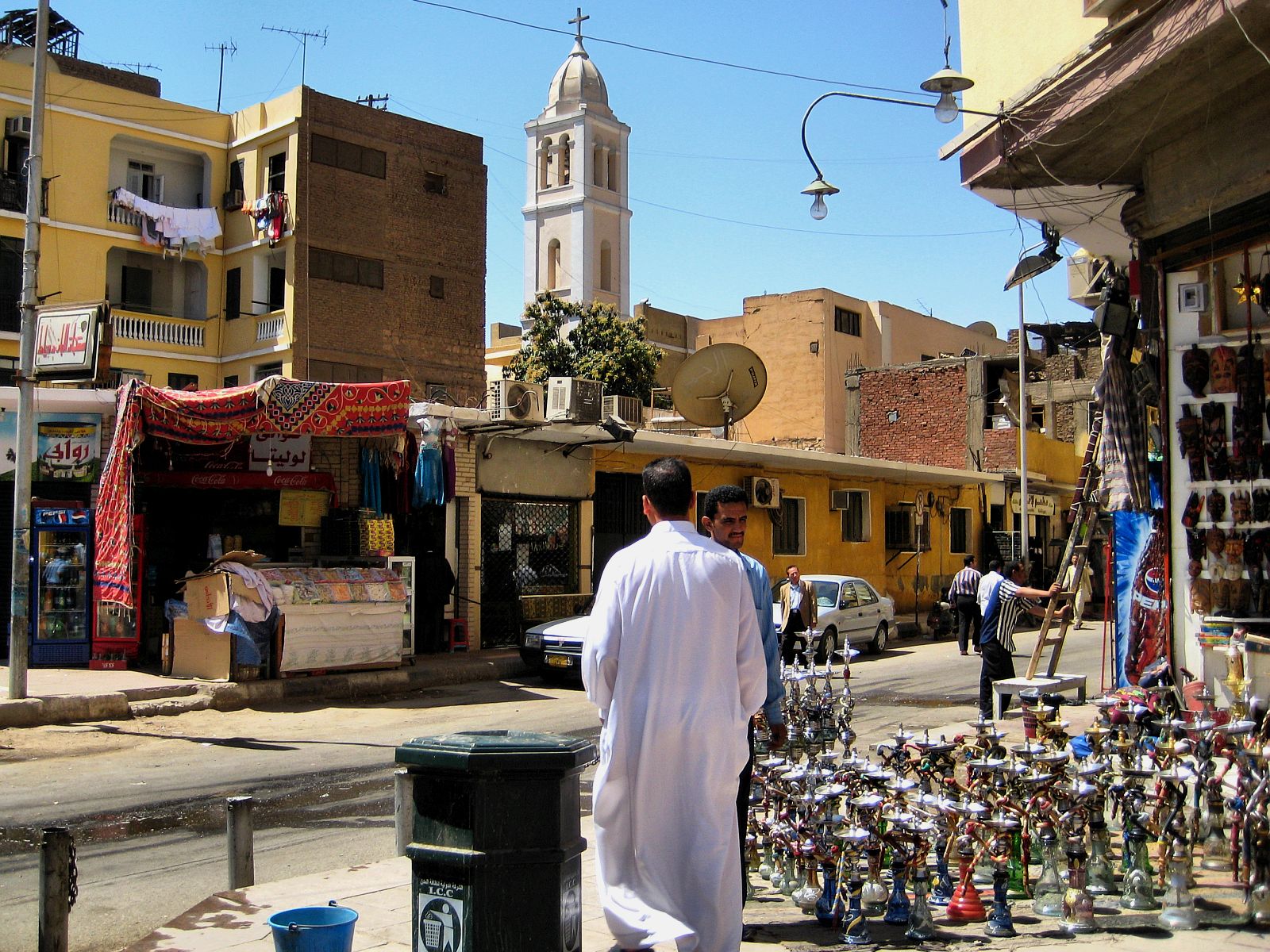
In the span of five minutes, I had caught myself an Egyptian suitor. To this day, I still randomly get messages from Mohammed, which are usually pictures of roses. He insisted I return to Luxor alone, so that he may show me the sights and sounds. If I ever grow tired of life in Los Angeles, I always have the option to go and live in the alabaster store with Mohammed.
Upon returning to Cairo, my father introduced me to roughly 8,000 cousins. The majority spoke English, with the exception of a few who only knew how to communicate via feeding me falafels and selfies. I also met Uncle Wale, my father’s brother, who has written five books on Islam, and as all siblings do to one another, horribly embarrasses my father.
Uncle Wale took us out to dinner at a fancy restaurant on the Nile. The long, flowing river was not as bright or as clear as it was in the South; it actually resembled the same mud and dirt as The Mississippi. Nonetheless, the Nile was one of the quietest places in all of Cairo, an oasis away from the constant honking. The cafes along the Nile soon became one of my favorite places in the city.
“Joinownfoiana?!” Uncle Wale barked at the host, who either didn’t have a table for us or didn’t have the right table.
“Inoanfioanfosna!”
“Buihbwbaifbbaibfa!” Uncle Wale stormed off, leaving us with the now disgruntled and confused host.
“What happened?” I asked Baba, who had buried his face in his hands.
“I don’t even know. Wale is so self-righteous. It’s so embarrassing. He’ll come back in a minute, just watch.”
Sure enough, Uncle Wale strode back up the host, who with a shrug, led us to our table, only to find a cat sitting in one of the chairs. When Uncle Wale tried to shoo the cat away, it stared at him, flicked its tail, and proceeded to roll over onto its back.
This wasn’t the last time Uncle Wale would storm off. During one family gathering, where my relatives had prepared the equivalent of eight Thanksgivings, Uncle Wale became disgruntled and marched right out the door. No one reacted to this and kept eating. Two minutes later, Uncle Wale sauntered back in, urging everyone to finish eating so that they could go watch the football match.
“It’s so embarrassing!” My father hissed at me, as Uncle Wale plopped back down at the table. “Why does he do this?!”
“All siblings embarrass each other,” I reassured him. “Nadia embarrasses me all the time.”
While none of my relatives matched Uncle Wale’s dramatic antics, they all had their own quirks. My cousin Tarek told me, in complete sincerity, that when we dream, our souls leave our bodies and we all meet up with each other in dreamland. He believed that this was why we dreamt of other people, we encountered them in dreamland. My cousin Kareem and I immediately bonded not because we were family, but because we both liked to watch RuPaul’s Drag Race. It seemed that, like my father, none of my family members were normal by any society’s standards.
Every day felt like Thanksgiving, as my family fed me plate after plate of falafels, rice, grape leaves, chicken, pita, salad and glass after glass of crisp, refreshing hibiscus tea. I was adorned with gifts: gold vases scrawled with Arabic writing, purses featuring Egyptian film stars, lavender, sea green, silver hijabs and a stunning sapphire necklace. I gaped at the necklace as my cousin draped it around my neck, uneasy to accept such a gift but flattered at the same time.
“It’s jamila,” She said, patting my face. “Just like you.”
“What does jamila mean?”
“Beautiful.”
I was touched by their kindness. Despite never having met me, they opened their doors to me, fed me and treated me as a true member of the family. Despite my lack of Arabic and clear appearance as an American, they still accepted me. They truly made me feel that Egypt was also my homeland.

/
 Sarah Mina Osman is a writer and teacher living in Los Angeles. She is half Egyptian/half Cajun, which, yes, is a strange combination. She has traveled to four different continents and lived in Australia. When she’s not writing or teaching, she enjoys dancing, watching random shows she finds on Netflix and eating. She also has a deep appreciation for sloths and platypi.
Sarah Mina Osman is a writer and teacher living in Los Angeles. She is half Egyptian/half Cajun, which, yes, is a strange combination. She has traveled to four different continents and lived in Australia. When she’s not writing or teaching, she enjoys dancing, watching random shows she finds on Netflix and eating. She also has a deep appreciation for sloths and platypi.
The post Kentucky Fried Camel in Egypt: My Return to a Country I Never Left appeared first on The Expeditioner Travel Site.
]]>The post Why I Brought My Baby to Egypt appeared first on The Expeditioner Travel Site.
]]>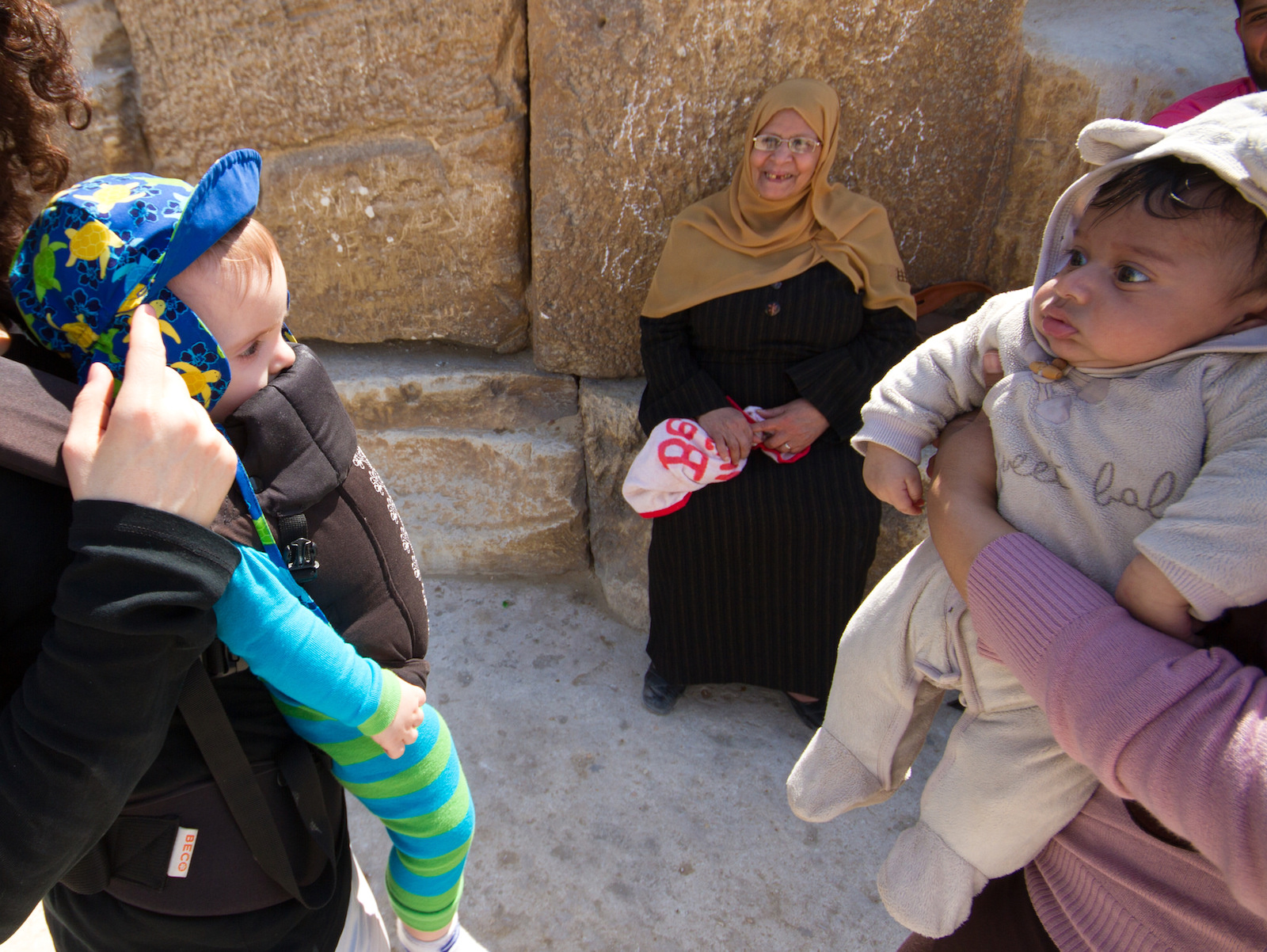
Shortly after 3 a.m., I was asleep on an overnight train from Cairo — until I wasn’t. Until my 10-month-old son started thrashing in my arms and convulsing. Until my husband stumbled down from the top bunk to help, until he flipped on the light in the tiny compartment, until he crashed against the bottom bunk, his head narrowly missing the metal ladder.
Our baby’s eyes were swollen shut with creamy yellow pus. It looked like the foam people use to prevent rats from getting into their house and smelled like something rats would probably gobble right up. His screams ricocheted off the windows, blocking out the sounds of the train blasting along on its way to Luxor. The noise did not, however, mask the whomp my husband’s body made as he thudded to the floor. I didn’t hear Garrett’s eyes roll up into his head, but roll up they did.
I had a sick baby, an unconscious husband and one thundering question: Had everyone been right?
*
When Garrett and I told people about our plans to take our baby son to Egypt, reactions ranged from the gently judgmental (“Hmmm . . . that’s different”) to the downright hostile (“Are you crazy? What about the terrorists?”). My mom said she’d join us — and pack a gun. My dad didn’t speak to me for two weeks.
We could thank the media’s typical portrayal of Egypt as one tweet away from crumbling into anarchy for these attitudes. As is the case with most of the Middle East and North Africa, it’s rare to see positive coverage, let alone coverage that makes you want to hop on a plane with your kid.
Unfortunately, much of the media’s coverage reflects a violent reality. In recent months, militants had begun targeting various areas, including tourist sites, as part of an increasingly coordinated campaign against the government. On balance, the country is more dangerous than, say, Canada or Bermuda. So why go? And why bring a baby?
Garrett and I will travel just about anywhere because we believe just about everywhere is worth visiting. We got married in West Africa, had The Talk about getting pregnant after a long hiking trip in Nicaragua and tried to conceive on a train from Moscow to Ulaanbaatar. (It was February in Siberia and there wasn’t much else to do.) I felt the baby kick for the first time, one perfect bubble rising up from my middle, during a concert in Prague. Traveling is part of who are as a couple and who we plan to be as a family.
Baby was 12 weeks old when we took him to get his passport. In the photo he looks like a sad sack of potatoes no one wants to buy at the grocery store, his head lolling to one side, his features a conglomeration of puffiness. In short, he looks like most everyone does in passport photos, only smaller.
We picked Egypt the way we’d picked so many destinations over the years: we got a good deal on flights. The guidebooks said that Egyptians like kids, but what guidebook in the history of the world doesn’t say the same?
Besides, Egypt is one of the oldest continuous civilizations in the world, and you don’t last that long without knowing a thing or two about taking care of offspring. We wanted to see our little baby crawl in the shadow of the Pyramids which were old even when Cleopatra went to visit them. A wee, new life juxtaposed against evidence of an almost unfathomably ancient one felt worth the price of airfare.
At Baby’s age, going from the living room to the kitchen constitutes a life-changing trip. Obviously we knew that he’d remember nothing about Egypt. Indeed, given the choice as well as the ability to make the choice, he might prefer to stay at home. We went anyway, because we didn’t want to wait until some mythical point in the future when he’s “old enough” to start seeing the world.
No one in Egypt questioned the wisdom or sanity of bringing our baby to a place still reeling from revolution. No one wondered why we’d take him to a country where tanks stand in the capital’s main square and suicide bombers have roamed the roads, necessitating that visitors travel in armed caravans in some areas. Instead, people wanted to know what kinds of diapers we used and whether we were satisfied with his crib. They wanted to know if I was breastfeeding him and how we brushed his teeth. We were asked more than once whether his Cheerios were iron-fortified.
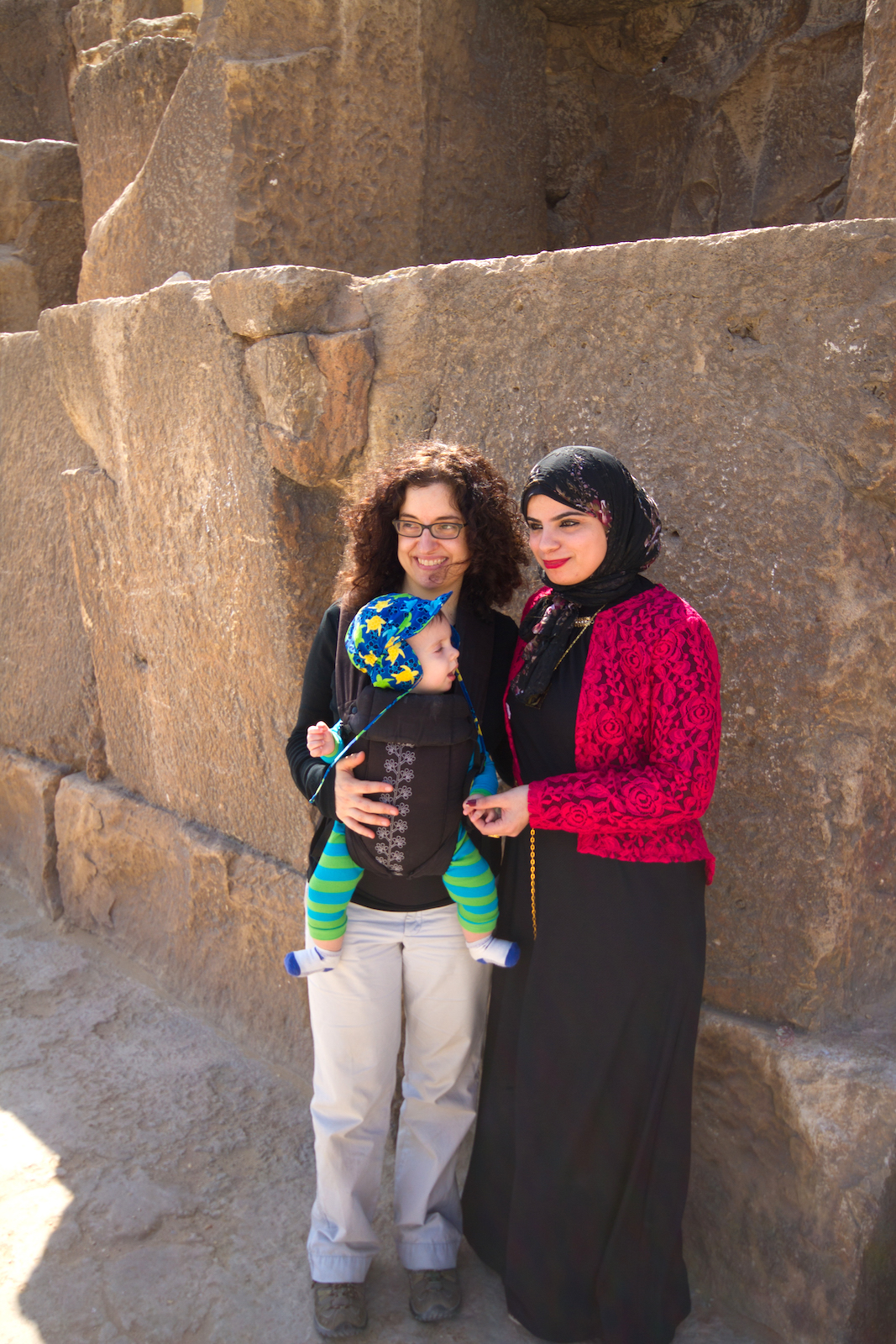
Nevertheless, shaking the concerns of our loved ones proved hard. When a young woman in a hijab slung her arm around me in the shadow of the Sphinx, I assumed I was about to be pickpocketed. As she fumbled about my waist, I calculated how many Egyptian pounds I had and tried to remember where we’d stashed our passports. All she wanted, though, was a picture of herself posing with the baby and me, but she couldn’t figure out where to put her hand amongst the straps and snaps of his carrier.
The three of us had some adjusting to do, for sure. The first time a person hissed at my fair-haired, blue-eyed baby, I jumped about a foot. Ditto when someone snapped their fingers in his little face. My hand rose to shield him, while a lie — “We’re not American! We’re Canadian! Caah-nay-di-aaaaaaan!” — rose to my lips. I jerked less the second, third, fourth, twenty-eighth time. As it turns out, hissing and snapping at babies in Egypt are akin to coochie-coochie-coo-ing and stroking babies under the chin in the United States: It’s what you do to show affection and maybe induce the giggles.
Everywhere my husband and I went, our son was kissed, blessed, fawned over, caressed, hissed at, snapped at and cuddled. Teenage girls swarmed us to get a closer look. Old women stroked his cheek and pinched his feet. Hardened dock workers dropped their cigarettes to press coins into our palms for luck. We were often complimented on the masculinity of his name, Wolf.
People drew out the “l” so that it became “Wollllllllllllllllllllllllf.” The baby accepted the attention with ease, and never once cried or fidgeted when strangers approached. The only thing Wollllllllllllllllllllllllf didn’t like during the entire 10-day trip was falafel.
*
That night on the train, I balanced the baby against my body with one hand and soothed my husband awake with the other. I managed to maneuver Garrett back into his bunk before scraping the crud off every single one of Wolf’s eyelashes, using tissues, bottled water and an entire bottle of Purell.
He opened his eyes long enough to seek out mine for a single second, then blinked back to sleep. The next day we went to a pharmacy, where a nice man named Ans translated English to Arabic and helped us get eye drops to combat the dust and dirt that were causing the infection. At home in New York a few weeks later, our pediatrician said she would have recommended the very same medicine.
I am not easy in the world, but I want my son to be. I want him to be imaginative and inquisitive, comfortable in cities and in the country and enthusiastic about all kinds of adventures and interactions. Going places — from hiking in nearby New Jersey to visiting friends in Los Angeles to traipsing around Egypt — will help him develop those characteristics, and traveling will teach him the sometimes subtle difference between being cautious and being afraid.
At a late lunch a day or so before leaving Egypt, Garrett and I tried to trade off childcare as we slurped soup and dipped pita into hummus. The manager of the restaurant rushed over, arms outstretched, offering to watch Wolf since the restaurant didn’t have a highchair.
He picked the baby up and wandered off. As the minutes went by, Garrett and I looked at each other, wondering which of us should go find our son. No matter what kind of parents (and travelers) we’re striving to be, someone we didn’t know had, after all, taken our kid somewhere we couldn’t see. Just as Garrett stood up, the manager came back, followed by a cook, a waiter, another cook, and two dishwashers — pretty much the entire kitchen staff. Every single one of them wanted to get a picture holding the baby “to put on Facebook.”
We put our photos (of the baby taking a cruise down the Nile, of him trying to pet a stone cat, of the three of us beaming in front of incredible temple after incredible temple) on Facebook too. We got some likes and a fair amount of glad-you’re-back-safe-and-sounds. A few people asked where we’re headed next. Amsterdam, we typed back. Copenhagen. Then to Florida to see family. After that, who knows?
My favorite comment came from my mother-in-law. “I can’t believe my little grandson has a passport and I don’t,” she said.
So she got one. Now, at age 67, she’s planning her first trip to Europe.

 Jessica Allen has written about street art for Mental Floss, Harlem for The Boston Globe, books for The Washington Post, baby personalities for McSweeney’s, and what to eat on the Trans-Siberian Railway for Serious Eats. She lives in New York with her family.
Jessica Allen has written about street art for Mental Floss, Harlem for The Boston Globe, books for The Washington Post, baby personalities for McSweeney’s, and what to eat on the Trans-Siberian Railway for Serious Eats. She lives in New York with her family.
The post Why I Brought My Baby to Egypt appeared first on The Expeditioner Travel Site.
]]>The post Yes Virginia, It’s Safe To Visit Egypt (And Cheap Too) appeared first on The Expeditioner Travel Site.
]]>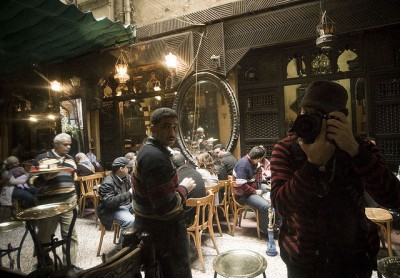
Who says travel bloggers aren’t journalists? Okay, lots of people, but that doesn’t stop a few of them (us) from putting boots on the ground and getting some real reporting done, outside of listing out our top 10 favorite places to drink around the world, or how you can get paid to travel the world (Answers: #1 Matt Torrey’s in East Williamsburg, Brooklyn; and land a lucrative job as a travel show host, respectively).
In an effort to get some insight as to what travel is like right now in Egypt, and whether it is in fact safe given the recent political turmoil and much-publicized detaining of three Americans (one of whom is Transportion Secretary Ray LaHood’s son) who were working in Egypt for a U.S.-funded pro-democracy group, friend of The Expeditioner DowntownTraveler.com enlisted the help of local Italian Giulia Cimarosti to give us the skinny.
In response to the question of whether the tumult in Tahrir Square is indicitive of the rest of the country, Giulia pointed out that “[e]veryone must know that whatever happens in Tahrir Square, the rest of Cairo and — most of all — the rest of Egypt is perfectly safe. This doesn’t mean that the protests are not important, but tourism-wise there are no complications at all.”
Good to know, but what about deals — has the bad publicity and decrease in visitors translated into travel bargains for the cheap traveler and are all the sites still open? “Nothing has changed regarding visiting ruins, museums etc . . . The ticket fares are probably still the same (they’ve always been cheap anyway!), but I saw great deals on organized trips with tour operators. The touristic sites operate normal hours and are less crowded now . . . I would definitely take advantage of that.”
Anecdotally, I recently spoke with my colleague/Jenga opponent Aaron of AaronsWWAdventures.com who recently returned from his own six-week jaunt through the Middle East, including a stay in Egypt. Despite the presence of a few groups of lingering protesters in Tahrir Square, and the noticeably aggressive (even by Egyptian standards) hawkers at the major sites as a result of the drop in tourists, life and the sites seem to be back to as normal as they’ve ever been. Deals were aplenty he noted, as all of the guides and others whose livelihoods are dependent on foreign visitors have been forced to slash prices to compete with the few visitors at the near-empty sites.
So in a nutshell: Ogling tourists are at a minimum, prices have never been cheaper (and this is in what is otherwise a very cheap country for visitors) and safety is about as much as a concern as any other time. What are you waiting for? Now seems to be as good as time as ever.
[Is it safe to visit Egypt after the revolution?/DowntownTravler]
The post Yes Virginia, It’s Safe To Visit Egypt (And Cheap Too) appeared first on The Expeditioner Travel Site.
]]>The post I Urge You (Again!) To Go To Egypt appeared first on The Expeditioner Travel Site.
]]>
In April of this year, I encouraged you to travel to Egypt with Megan Fox. You did not listen to me, and now Egypt’s tourism is on pace to finish 25% down this year, accounting for around a $3 Billion loss of Egypt’s $15 Billion tourist economy. Egypt hasn’t looked this bad since The Mummy Returns.
If you are reading this and have not traveled to Egypt this year, then this is your fault. But it is also my fault (and especially Jon Wick’s fault). Despite contemplating a trip to Egypt, it never panned out for me and this has crippled tourism, one of the country’s major sources of revenue.
Instead of there being a new threat to tourists traveling to Egypt, a perceived threat has caused many to change their travel plans. Due to the press’s focus of the Arab Spring, plenty are wary of instability in Egypt. But if the thought of visiting Washtington, D.C. doesn’t frighten you, then don’t sweat going to Egypt, where the murder rate is 1,000 times less. Washington, D.C. is to Saving Private Ryan what The Care Bear’s Movie is to Cairo.
Egypt, with its enormously long historical scroll, is currently drafting one of the most important chapters of its history. It’s an important time for Egypt as a country and that makes for an even more memorable visit there.
As reported in the NYT, many tourism operators are catering to wary travelers by encouraging them to bypass Cairo to see the often overlooked destination of Alexandria. One big draw there is the The New Library of Alexandria, which — since being opened in 2002 — has not yet been burned down by the Romans. The New Library boasts an Espresso Book Machine, which can “magically” reproduce almost any book in an instant (in much the same way Jean-Luc Picard used the replicator to make his books aboard The USS Enterprise).
Alexandria is also well placed on the warm waters of the Mediterranean and has a happening night life with bars, pubs, dancing and frequent performances. By day the city offers museums and teahouses where you can take off a load and smoke the sheesha you did not in college when your hookah was loaded with something else.
And as is often the case when the supply of a demand dwindles, the supply wins. Right now, travelers are in short supply in Egypt, making the Land of the Pharaohs the land of discounts that begs the intrepid travler to take advantage of.

About the Author
 Luke Maguire Armstrong lives in Guatemala directing the humanitarian aid organization, Nuestros Ahijados. He wants to fight a bear. His book of poetry, iPoems for the Dolphins to Click Home About (available for sale on Amazon.com) is especially enjoyed by people who “don’t read poetry.” (@lukespartacus)
Luke Maguire Armstrong lives in Guatemala directing the humanitarian aid organization, Nuestros Ahijados. He wants to fight a bear. His book of poetry, iPoems for the Dolphins to Click Home About (available for sale on Amazon.com) is especially enjoyed by people who “don’t read poetry.” (@lukespartacus)
The post I Urge You (Again!) To Go To Egypt appeared first on The Expeditioner Travel Site.
]]>The post What’s It Like Traveling In Jordan? appeared first on The Expeditioner Travel Site.
]]>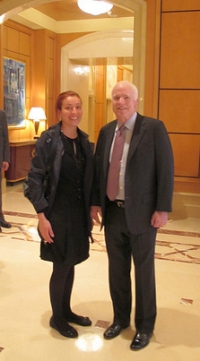
I don’t have a good answer for you (hopefully one day soon), but friend of our site DowntownTraveler.com (Leslie Koch) has been on a six-day trek throughout both Egypt and Jordan, checking out the pyramids, visiting Petra, and even meeting John McCain (yeah, I hate when I run into him too during my travels).
Check out her Twitter feed for past and future updates on the trip, including photos, and find out what other American political celebrities she runs into along the way. You can also check out some great photos of her trip on her Flickr stream here.
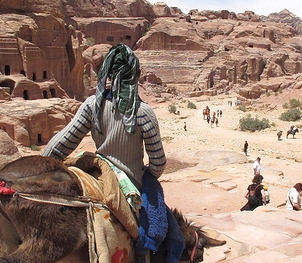
The post What’s It Like Traveling In Jordan? appeared first on The Expeditioner Travel Site.
]]>The post I Urge Immediate Travel To Egypt With Megan Fox appeared first on The Expeditioner Travel Site.
]]>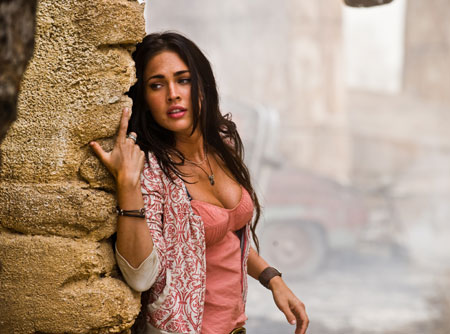
Though I cannot be held responsible for any adverse outcomes if you follow my advice: I think you should go to Egypt. Not since Ramses II’s coming of age party has there been a better reason to travel to Egypt. What is happening in Egypt (brace yourself for a grandiose claim) could be the most significant event of the century. Perhaps someday we will change our calendars so that year zero marks when Egypt catapulted humanity into a brighter age. Or a darker age.
True, it might not get that heavy. But who knows? And wouldn’t you want to witness firsthand whatever unfolds from this?
The US Government sure doesn’t think so. According to the Huffington Post, the U.S. government “Warns Americans to defer travel to Egypt.”
But always dash some salt on the things that the US government tells you. Recall that this is the same government that wants to take 1,000-calorie cheeseburgers away from you. And remember when the US government almost killed all the bald eagles because they told farmers to use DDT as an agriculture insecticide? Yeah, that was a bad call Uncle Sam. Everyone knows it is un-American to kill bald eagles.
My ADHD discovered from reading UK’s Pesticide Action Network that Egypt is off the chart in terms of how much DDT an average Egyptian consumes. Why is this? I don’t know. My guess would be they are still using DDT on their crops. It’s probably okay to use DDT over there because they don’t have bald eagles. Just sphinxes. And DDT does not affect sphinxes.
| Relative DDT Intake From Food | ||
| Country | Daily intake units | % of ADI |
| Egypt | 13.7 68.5 | 68.5 |
| Finland | 0.026 | 0.13 |
| India | 3.6 | 18.0 |
| New Zealand | 0.003 | 0.015 |
| UK | 0.05 | 0.25 |
High levels of DDT in food is not the reason the US wants you to stay the pharaoh out of Egypt. With so much uncertainty in the Nile Valley, America always errs on the side of caution when it comes to her kids’ safety. She doesn’t want you to smoke cigarettes or be stabbed during a peaceful demonstration. On the other hand, to keep our politicians safe, the U.S. government should really relocate to Egypt. The murder rate of Washington DC is 1,000 times higher than that of Egypt. 1,000 times!

It’s true, things are uncertain and things are changing in Egypt. Quickly and suddenly things are changing. But in talking to friends on the ground, there is hopefulness mingling with this uncertainty. People are upbeat and are dancing in the streets.
It’s not my purpose here to dive into the details of why what is happening is so historic. But trust me. It is. Nicholas Kristoff said so on Twitter. To paraphrase Stereo Lab, “Incredible things are happening in Egypt.” Whether it leads to greater stability in the Middle East or a crumbling towards chaos, you don’t want to miss this.
Remind yourself that you are living in a Brave New Travel World where an airline ticket can be purchased to Cairo in two online minutes. A single Kayak click can make you part of it all. Even though the U.S. warns citizens in Egypt to stay in their hotel room, if you go to Egypt I encourage you to dance in the streets. You could even make a T-shirt that says I danced in the streets of Cairo the year Mubarak fell. Throw graphics of pyramids and some mummies on it and that would make a pretty cool T-shirt.
A flight from NYC to Cairo takes ten hours. If you buy your ticket after breakfast tomorrow, you could have dinner tomorrow night in the shadow of the pyramids. Of course, you will need to justify your decision to family and friends who will ask, “What the hell are you thinking?” They have the Internet and they know how to use it. They will use Google to show you articles they have found about how crazy and stupid going to Egypt is. They’ll have good points; they’ll show you pictures of people with guns. They will do this because they care about your safety. They love you and don’t want to lose you.
You might want to listen to them and stay home.
But let me push the counterpoint. To rephrase a memorable Transformers’ (2007) quotation, “Fifty years from now, when you’re looking back at your life, don’t you want to be able to say you had the guts to get on the plane?”
I know I want to be able to say that. I bet you would love to be able to say that. And I bet we’d both feel more comfortable if Megan Fox came with us.
So will you go to Egypt this year? Will I go to Egypt this year? I don’t know. Maybe. I’m going to try to. You should try to. I’m looking ahead in my 2011 calendar to see where such a trip might fit. Maybe I’ll see you there.
And stay out of Libya. The US government says so.

About the Author
 Luke Maguire Armstrong lives in Guatemala directing the humanitarian aid organization, Nuestros Ahijados. His book of poetry, iPoems for the Dolphins to Click Home About (available for sale on Amazon.com) is especially enjoyed by people who “don’t read poetry.” (@lukespartacus)
Luke Maguire Armstrong lives in Guatemala directing the humanitarian aid organization, Nuestros Ahijados. His book of poetry, iPoems for the Dolphins to Click Home About (available for sale on Amazon.com) is especially enjoyed by people who “don’t read poetry.” (@lukespartacus)
The post I Urge Immediate Travel To Egypt With Megan Fox appeared first on The Expeditioner Travel Site.
]]>The post How You Fall In Love With A City: Inside Egypt appeared first on The Expeditioner Travel Site.
]]>
The essence of a city is what makes people fall in love with it. Sure, there are many things to do in an urban center much like there are many things to do everywhere, but it will steal our heart when we get to know the people in it, the blood that pumps through its heart and keeps the body moving.
This is not my first time writing this: cities have always captured my fascination because of their energy. One of my favorite moments when flying into an international airport — usually situated on the outskirts of the city core — is seeing the highways flowing with glossy cars carrying people to-and-fro the core. Sometimes, you can see the bottleneck effect of where traffic was clogged from construction or an accident. From up there, you can see how the buildings go from low-laying sprawl to high-rise reminders standing at the heart.
I always dreamed of going to Cairo. The allure was partly the history, partly the proximity to the desert and partly the culture. It was its warmth and glow that pulled my attention.
With the not-so recent events, a different Cairo is surfacing into view for all to see. As this recent article on CNN highlights, our view of contemporary Cairo has evolved. It is not just about the pyramids and the sand, but about the people and their lifestyle.
I asked a friend — Angela, who runs a B&B here in Buenos Aires — about Cairo. She lived in the city for a few years, got to know the people, learned the language and observed how they lived. By being there, she got to get a feel of the essence of the place:
I agree with every single bit of what the article said. I always loved how Egyptians hang out on the bridges over the Nile on warm summer nights. The breeze off of the water and because there are no buildings blocking it makes the bridges the coolest part of town.
There are all sorts of vendors selling everything you can imagine. Wedding parties head out to the corniche (the streets along the Nile) to have pictures taken, hang out among the beautiful buildings, get some relief from the heat and be social. On the boats, there are parties happening with loud music and dancing. It’s a blast. The Nile is the center of everything there.
When I asked her about the “slum” housing, she observed:
The low-income housing in Cairo is really interesting. They call the houses “generation houses” because each new generation builds an apartment of sorts on top of the already existing structure. So when a son marries, he and his wife move in above his parents and the houses just keep getting taller. You can tell how many generations live in the house by the number of floors. The problem is that there are no building codes and these houses sometimes collapse.
Still, despite its housing flaws, Angela still feels like it was the “safest place” she has ever lived. She continued to tell me that. “The pollution and noise in the city can become draining after a while. But that’s also the beauty in a strange way. It’s a magical place.”
Perhaps for traveling, when we do instant snapshots, we only get a glimpse of the surface. That’s O.K. too, because we need those moments. When watching a movie, nothing is more hilarious than getting the chance to say, “Oh wow, I was there!” But, when getting to know a peoples, sometimes you need to discover its problems, look at its faults and appreciate the people who have lived through it all. Perhaps this is how you fall in love with a city.
And sometimes, you just know.
By Brit Weaver

About the Author

Toronto born and based, Brit is an avid leisure cyclist, coffee drinker and under-a-tree park-ist. She often finds herself meandering foreign cities looking for street eats to nibble, trees to climb, a patch of grass to sit on, or a small bookstore to sift through. You can find her musing life on her personal blog, TheBubblesAreDead.wordpress.com.
The post How You Fall In Love With A City: Inside Egypt appeared first on The Expeditioner Travel Site.
]]>The post Is It Possible To Eat Your Way Through Cairo In One Day? appeared first on The Expeditioner Travel Site.
]]>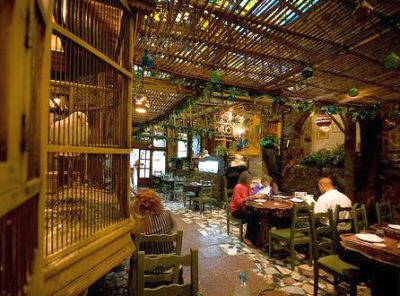
Egyptian cuisine is produced from the melting pot of the Middle East, North Africa and the Mediterranean. It is varied and fascinating, but if you only have one day in Cairo, you can cover the basics. Here’s how.
By Robin Graham
Breakfast
Felfela has been a fixture on the travel circuit in Cairo for not just years, but generations. A haven for those perhaps intimidated by the less polished eateries of the city, but still offering something of an Egyptian flavor, it has been a firm favorite for many. There are those who will tell you it’s past its prime and who knows, they may have a point, but its takeaway branch aimed at the locals, around the corner on Talaat Harb Street, is very definitely going strong.
I like to go for breakfast, sometimes tucking into it there and then, standing along the walls where pedestals have been placed for the purpose, otherwise returning with it to the hotel if I am staying nearby. As long as the doors are open, this place is busy.
Fuul is what I’m here for. Served in grainy Egyptian pita bread, fuul consists of cooked and mashed fava beans, often served cold. It is the quintessential Egyptian breakfast, more earthy and hearty than hummus, a better comparison being refried beans, but with a unique and not unpleasant bitterness. My friend “K” hates it instantly. I can’t get enough. Instead she has ta’amiya, the local equivalent of felafel, but greener, more moist and, well, better.
Lunch
Koshary is all wrong.
Served as fast food and pretty much Egypt’s national dish, it consists, bizarrely, of rice, macaroni and lentils. That’s right, you heard me. You wouldn’t credit it, would you? The sprinkling of a few fried onion flakes over the top with some chickpeas thrown in seems like a desultory effort at injecting a bit of flavor into this carb-fest; a little tomato sauce served on the side unlikely to elevate the whole stodgy mess to the status of decent meal. Insulting, almost.
 Until, that is, you take a mouthful. At which point what looked so wrong tastes . . . oh so right. There is alchemy at work here. It might be the Cairo air, thick with pollution, or perhaps the fluid, expert motion of the koshary men as they flick their metal bowls, combining the ingredients in the flash of an eye, almost unconsciously, their muscle-memory doing the work.
Until, that is, you take a mouthful. At which point what looked so wrong tastes . . . oh so right. There is alchemy at work here. It might be the Cairo air, thick with pollution, or perhaps the fluid, expert motion of the koshary men as they flick their metal bowls, combining the ingredients in the flash of an eye, almost unconsciously, their muscle-memory doing the work.
Whatever the extra ingredient, koshary is an extraordinary dish. The word originates in the Hindi kishri, meaning “an unlikely mix.” It commands devotion, allegiance and loyalty: Cairo’s outlets compete fiercely, and regulars are just as fierce in their defense of their preferred venue.
Many are the devotees of Abou Tarek restaurant — today, the burqa is a source of fascination for us there as we watch a young woman struggling to eat her koshary through it while eating there — but there are those who will swear by Koshary El-Tahrir near Tahrir square. Also, often overlooked, in the Bab El Louk district, there is a place called Lux where I had my first encounter with this staple. They have a few other branches around town.
When you sit down with your bowl, there will be a couple of dressing bottles on your table. The contents of one will be hot. The other will be a pungent mix of garlic, vinegar and lemon. Both will be unexpectedly delicious.
My “top ten things to do in Cairo” list is constantly evolving, but predictable suggestions such as the National Museum and the pyramids lost their slots years ago to experiences like taking a taxi ride (anywhere, just try it) and eating koshary.
It’s all wrong I tell you.
Dinner
Egypt, land of pharaohs, pyramids and pizza.
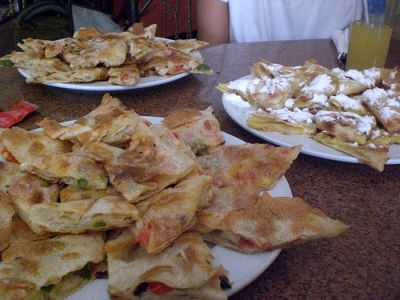 Well, almost. The fiteer is Egypt’s version of the slightly better known Italian flatbread. Like its cousin, it is street food, served in any number of down-to-earth places throughout the city. Unlike pizza, it’s made from lighter, flaky pastry and is usually stuffed rather than topped, though I’ve seen it both ways.
Well, almost. The fiteer is Egypt’s version of the slightly better known Italian flatbread. Like its cousin, it is street food, served in any number of down-to-earth places throughout the city. Unlike pizza, it’s made from lighter, flaky pastry and is usually stuffed rather than topped, though I’ve seen it both ways.
We are in Fatatri near Tahrir Square, a long-standing fiteer place. It’s our first evening in the city this time round, and I’ve dropped K in at the deep end, the place a dusty and rather grimy version of what it once was as the ubiquitous street cats circle our ankles for crumbs.
We are the only customers, not quite outnumbered by the three bored looking staff members. They have a wall mounted television on at full volume, Koranic readings thundering through the tiny restaurant. Something tells me I won’t be having any wine with my dinner. I don’t even ask, settling for a Fanta.
I have to hand it to them though, the fiteer is tasty, topped with spiced lamb and white cheese. These pancakes are as popular sweet as they are savory, filled with powder sugar, honey, nuts or coconut among a myriad of other options.
Still, I could have done with a drink.
Nightlife
Later, with that in mind, we find ourselves in the Al Hurriya cafe in the Bab El Louk area again, just across from Lux. This place, you might say, has seen better days. It’s one of those huge, echoing spaces, old-fashioned fans wobbling from the high ceilings; the 19th-century acoustics produce a clattering din. If anyone has approached the cafe with a can of paint over the last 50 years, they have evidently been turned away.
Tonight, Al Hurriya is crowded. We look around for a spare table to no avail, and the waiter helps us out by planting two rickety chairs at the end of one already occupied. Two bottles of Egyptian beer are plonked between us. Nobody has asked us what we want — it’s a given. It isn’t everywhere in Cairo you’ll be served beer and that’s why people come here. If you turn to the left when you come through the door it’s coffee, tea, dominoes and chess. If you turn right, it’s beer.
You might say it has seen better days, but you’d be wrong. The place is still an institution in Cairo, a meeting place for those on the political left, expats and the less conservative elements of Egyptian society. Cairenes don’t seem to care about chipped paint. We find ourselves sharing a table with Hassan and Abdul. They are in “shipping” and that’s as much detail as I’ll be getting on that.
End of day one — we have eaten well on the unpretentious food this city offers, and by sticking to the places where locals eat we have had a good taste of Cairo’s street life as well, its daily rhythms and its people.
Abdul looks over a a lady wearing the hijab at a distant table, soft drinks in front of her and her male and female companions.
“You know, before, you never see this,” he said, gesturing toward the small group. “No women in this place, never. Now, everything is mixed. A shame, really a shame.”
K is sitting right there.
“You really don’t like it mixed like this?,” I ask him.
“No, I don’t like. It’s a shame,” he repeats. “You like it?”
K is sitting right there.
“Yes, I prefer it mixed,” I say.
“So do I!”, he declares emphatically, breaking into a belly laugh, a large grin appearing on his face. “Shall we order more drinks? The night is young!”

Felfela, 15 Shara Hoda Sharaawi, Downtown, Cairo , 02/392-2833
These days Felfela has more than one branch but this is the original and the takeaway version is just around the corner on Talaat Harb Street.
Abou Tarek, No.16 on the corner of Maarouf and Shambliuan (Champlion), downtown.
They even have a website (with lots of annoying graphics). Learn all about Koshary at www.aboutarek.com
Koshary El-Tahrir, 12 Youssef El Gendy Street, Bab El Louk, 02-27958418.
Fatatri is on El Tahreir Street, near Tahrir Square.
Lux and Al Hurriya can be found on Midan Bab El Louk (Bab El Louk Square), Lux on the south side on El Tahreir St, and Al Houria on the north side on Abd El Salaam Areaf St.
 Robin Graham has written for In Madrid, The Expeditioner and the Matador Network. He regularly contributes to The Spain Scoop and blogs at the award-winning Alotofwind. Follow him on Twitter: @robinjgraham.
Robin Graham has written for In Madrid, The Expeditioner and the Matador Network. He regularly contributes to The Spain Scoop and blogs at the award-winning Alotofwind. Follow him on Twitter: @robinjgraham.
The post Is It Possible To Eat Your Way Through Cairo In One Day? appeared first on The Expeditioner Travel Site.
]]>The post Video: See Egypt Like You Never Have Before appeared first on The Expeditioner Travel Site.
]]>The only thing that bums me out about Josh’s great video on his trip to Egypt is the size of the crowd of tourists everywhere. Are all the sites like this in Egypt?
The post Video: See Egypt Like You Never Have Before appeared first on The Expeditioner Travel Site.
]]>The post Basata: So Much More Than Just An Eco-lodge In Egypt appeared first on The Expeditioner Travel Site.
]]>
When I began to read about Egypt´s first eco-lodge, I thought I would get to share an interesting spot for people to check out. However, upon reading it, I felt an overwhelming sense of awe. By the end of the article, I didn´t know which part to highlight. Was it the pure simplicity of the lodge, providing a secluded yet reflective escape for people? Was it Sherif El-Ghamrawy´s completely self-sustaining, environmentally-friendly facilities? Or, perhaps, it was how the camp was made with the help of the local Bedouins? All I can say is Basata Lodge seems to be the all-round spiritual, economical, ethical, environmentally-friendly place to go.
Upon reading Jon´s recent thoughts on disappearing tourist gems, I think we all began to realize how important preservation is. That´s why Basata Lodge seems to stand out so much: It perfectly preserves its environment by using old, practical methods of living, right down to the goat-fecal infused bricks.
As Sherif told Benji Lanyado, writer of the article, “When I came here there was nothing, and I want to think that if we ever left here there would still be nothing. I could just take my sticks and go away.”
While reading about the lodge, you get a sense of just how simple and fluid a stay at Basata can be. Afterall, as Lanyado points out, basata is Arabic for “simplicity.”
By Brit Weaver

About the Author

Toronto born and based, Brit is an avid leisure cyclist, coffee drinker and under-a-tree park-ist. She often finds herself meandering foreign cities looking for street eats to nibble, trees to climb, a patch of grass to sit on, or a small bookstore to sift through. You can find her musing life on her personal blog, TheBubblesAreDead.wordpress.com.
The post Basata: So Much More Than Just An Eco-lodge In Egypt appeared first on The Expeditioner Travel Site.
]]>The post Diving The Red Sea: Don’t Eat The Jellyfish appeared first on The Expeditioner Travel Site.
]]>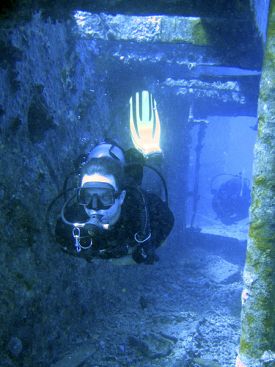
“Matt, you are excellent at exhaling very slowly. That’s a very good talent. That means you are a natural.”
Okay, not a skill that serves much purpose in the real world, nor is it a trait that I get complemented on very much on dry land, but when my dive instructor told me this when I was learning how to dive back in September off the coast of Mozambique, I couldn’t help to think, “You know what? I am a good exhaler, and it’s about time the world recognized my talents.”
Anyone’s whose gone through the process of learning to scuba dive can relate to this article over at the UK Times this week, where one intrepid traveler takes the plunge in the Red Sea in what has been described as one of the top 10 wreck dive spots in the world (the other 9 range from locations in Florida, Cyprus, and Papau New Guinea).
Instead, I breathe frenetically into my breathey thing and hang precariously on the line they’ve thoughtfully dropped from the boat as though my life depends on it, which, frankly, it does, while Paul outlines all the skills I have to perform underwater to qualify as a diver: swim with no mask, swim with no mask and my eyes open, put my mask back on and clear it of water using my nose, take the breathey thing out of my mouth, put it back, take it out again, but this time deliberately lose it, scrabble around to find it and try not to die.
I try this, but because I can’t see properly due to my mask being full of water, I narrowly avoid putting a jellyfish in my mouth instead.
Don’t worry he lives.
The post Diving The Red Sea: Don’t Eat The Jellyfish appeared first on The Expeditioner Travel Site.
]]>The post Epic Roadtrip Through 4,000 Years appeared first on The Expeditioner Travel Site.
]]>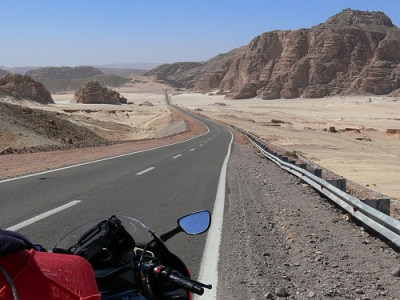
Friday afternoon is always a good time to do a little daydreaming about epic trips, and I think a motorcycle (or motorbike for you Brits) trip from England, through North Africa, up the Middle East, and back into Europe would certainly qualify as one (and earn you some true travel cred).
And this is exactly what Nick Laing is doing — and surprise, he’s blogging about it at the UK Times. According to his Steppenwolf-enabled interactive map (kind of annoying), he’s uploaded dispatches from Algeria (with stops in Tipaza, Kasbah, and Batna) as well as from Libya (via Tunisia) so far.
His latest update finds him in Aqaba after trekking over barnyard animal-infested roadways in Egypt and through the scenic landscape of Sinai:
“The centre of Sinai is extraordinary beautiful. Sandstone hills sculpted into a myriad of shapes by the abrasive action of the wind. The road hugged the contours and we enjoyed every minute of the ride powering round long bends, hills above us.”
I have a manual bike with bad brakes and leaky tires, and I routinely take epic trips through the heart of North Brooklyn, so I can totally relate to Nick here.
The post Epic Roadtrip Through 4,000 Years appeared first on The Expeditioner Travel Site.
]]>